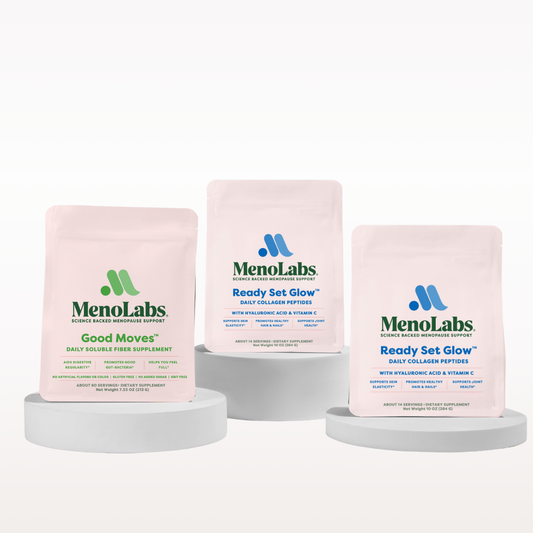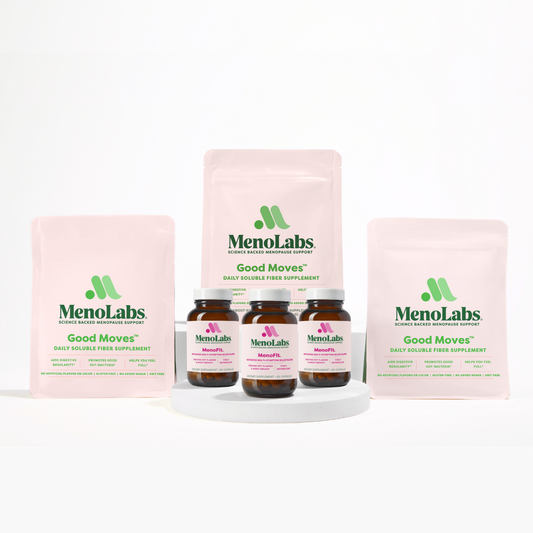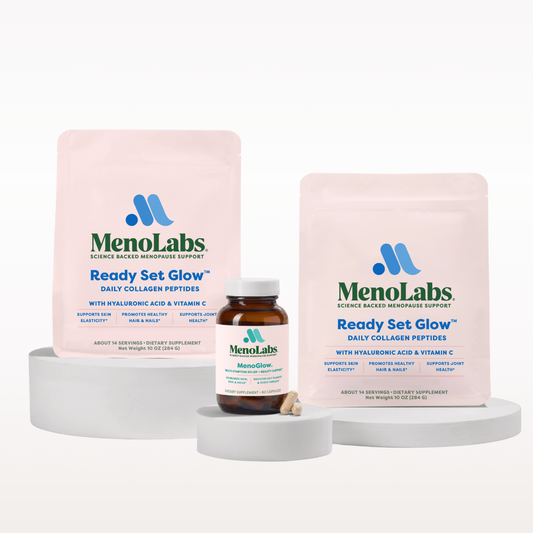
- Sexual Health
How To Figure Out What You Find Pleasurable
Pleasure. What does the word mean to you? A glass of wine after a hard day? Spending time alone with your partner? Finally, finishing a project you’ve worked so hard...
1 min read
Pleasure.
What does the word mean to you?
- A glass of wine after a hard day?
- Spending time alone with your partner?
- Finally, finishing a project you’ve worked so hard on for weeks?
- A vacation with your entire family?
When we think about pleasure, we don’t think about how we define the word, we think about how it feels...and what specifically it is that makes us feel that way. Pleasure is a visceral word – as personal as the person saying it. But, not everyone has a ready answer to this question, especially when we’re trying to define the word in relation to sex. And, that’s okay. That’s where we start.
During menopause, it’s not uncommon to experience changes in sexual desire and pleasure. Hormonal and physical changes can decrease drive and make it more difficult to reach climax. But just because we experience these changes it does not mean that we must resign to living with low libido. After all, our sex drives and desire all start in the brain. By stimulating those parts of the brain by breaking out of the same routine, you can rediscover what pleasure means to you. With minor changes, it’s possible to maintain active and enjoyable sex lives through perimenopause and menopause.
So how do you figure out what you find pleasurable?
1. Think beyond the bedroom.
Pleasure originates in the nucleus accumbens, one of the subsections of the hypothalamus of the brain. And just like other parts of the brain and body, if you don’t use it, you lose it. Stimulate the nucleus accumbens with non-sexual pleasures to keep it healthy and functioning. These pleasures can be anything from getting a full spa day to simply enjoying a decadent dessert when you normally wouldn’t have one. Even better, engage in these activities with your partner to create a mental connotation between them and pleasure. It’s a great way to build intimacy with each other while having a great time.
2. Work alone.
Here’s the thing about sexual pleasure: your partner cannot just know what feels good for you without you knowing first. If you’ve experienced changes in libido due to perimenopause and menopause, it may behoove you to try some solo exploration to rediscover what it is exactly that you like, and take note of it, so you can communicate better with your partner.
Even if you don’t have a partner, masturbation is still a healthy way to increase pleasure in your life overall. A March 2022 study of more than 12,000 Finnish people found that regular masturbation is positively associated with overall sexual function for subjects who identify as women. Self-pleasuring also releases neurotransmitters and hormones that help reduce stress and lower blood pressure, making it easier to relax and fall asleep while improving overall mental health.
3. Re-think how performative you are in bed.
Maybe you’ve always been more on the submissive side and you’ve taken sex as it comes. Or perhaps you have a tendency to get in your head, caring more about how your performance pleases your partner versus the pleasure you’re accumulating. However performative you’ve been in the past, consider breaking out of those habits, and instead, embrace sex as an opportunity to prioritize yourself. It may sound like a selfish notion on the surface, but in reality, when we respectfully communicate and negotiate with our partners for our own benefit, it opens new avenues for both parties to discover what feels good for them.
Related Products
Blend Besties Bundle
Fresh Start Bundle
4.7 / 5.0
(552) 552 total reviews











